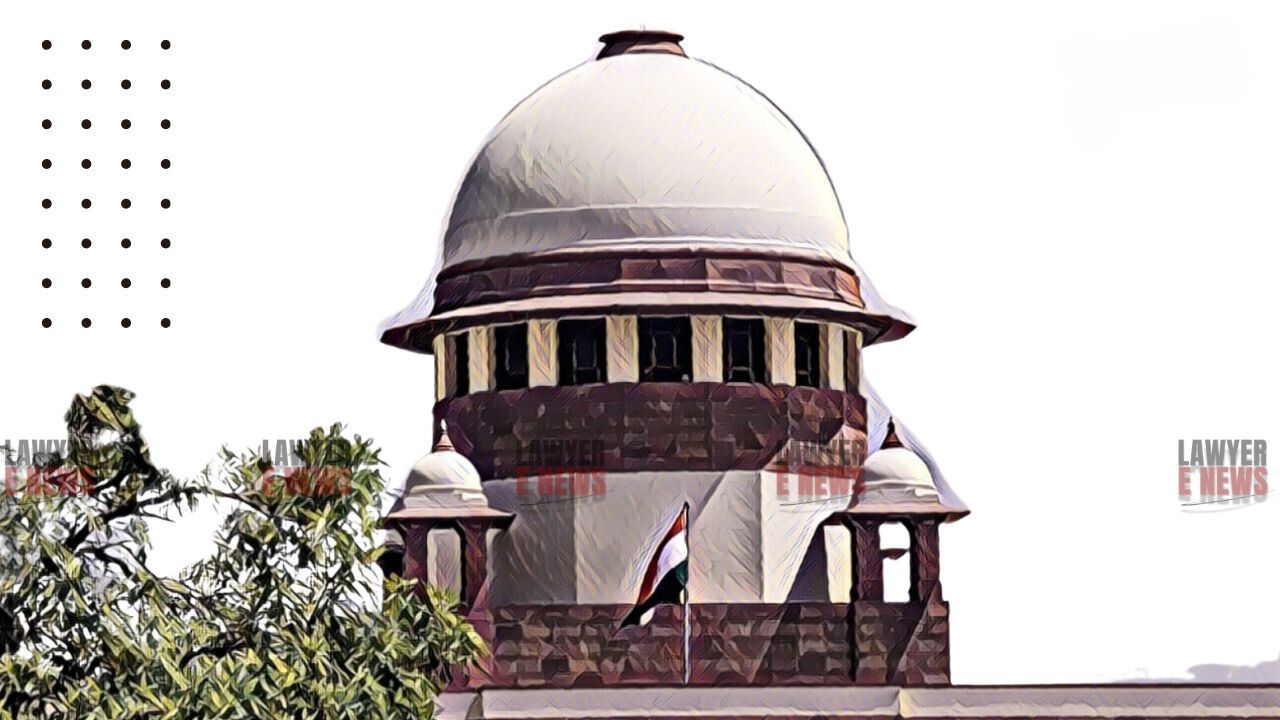-
by Admin
15 February 2026 5:35 AM



Supreme Court of India, in Chief Commissioner of Central Goods and Service Tax & Ors. v. M/s Safari Retreats Pvt. Ltd. & Ors., delivered a significant judgment interpreting clauses (c) and (d) of Section 17(5) of the Central Goods and Services Tax Act, 2017 (CGST Act). The Court upheld the constitutional validity of these provisions, which restrict the availability of Input Tax Credit (ITC) for goods and services used in the construction of immovable properties. However, the Court remanded the case to the Orissa High Court for a determination on whether the shopping mall developed by the respondent can be classified as a "plant" under the CGST Act.
M/s Safari Retreats Pvt. Ltd., engaged in the construction of a shopping mall, sought to avail ITC on the goods and services used in the construction of the mall. While they were liable to pay GST on the rental income from leasing out the mall spaces, Section 17(5)(d) of the CGST Act barred the claim for ITC on the construction of immovable property, other than "plant and machinery." The respondent challenged the constitutional validity of this provision before the Orissa High Court, which ruled in their favor, holding that Section 17(5)(d) must be read down to allow ITC for properties let out on rent. The High Court found that disallowing ITC would frustrate the object of the GST regime. The Revenue appealed this decision to the Supreme Court.
Interpretation of the Terms "Plant" and "Plant and Machinery": Whether the definition of "plant and machinery" in the explanation to Section 17(5) applies to the expression "plant or machinery" in Section 17(5)(d).
Constitutional Validity: Whether clauses (c) and (d) of Section 17(5) and Section 16(4) of the CGST Act are unconstitutional, violating Articles 14 and 19(1)(g) of the Indian Constitution.
Eligibility for ITC: Whether a mall or other immovable property constructed for leasing or renting qualifies as "plant or machinery" under Section 17(5)(d).
The Court first reaffirmed the general rule that ITC is a statutory right, and unless a specific provision of the law allows for it, ITC cannot be claimed. Section 17(5) of the CGST Act places certain exceptions to ITC, particularly for the construction of immovable property. However, goods and services used for the construction of "plant or machinery" are excluded from this restriction.
Distinction Between "Plant or Machinery" and "Plant and Machinery": The Court clarified that the expression "plant or machinery" in clause (d) of Section 17(5) cannot be equated with the term "plant and machinery" defined in the explanation to Section 17. The legislature intentionally used different terminology, suggesting different scopes of applicability. The Court emphasized that “if the legislature had intended to equate the two terms, it would not have used the expression 'plant or machinery' in clause (d)".
Application of the Functionality Test: In determining whether an immovable property, such as a shopping mall, qualifies as a "plant" under Section 17(5)(d), the Court applied the functionality test. This test assesses whether the building is integral to the business activity and necessary for the business to function. The Court cited its previous judgments, including Taj Mahal Hotel v. CIT and Karnataka Power Corp. v. CIT, to reinforce that in certain cases, buildings can qualify as "plant" if they are essential to the business's operations.
Remand to the High Court: The Court concluded that the High Court of Orissa had erred in reading down the provision without conducting a factual examination of whether the shopping mall in question qualifies as a "plant." Each case must be evaluated on its facts to determine whether the immovable property constructed is a "plant" for the purposes of ITC. Consequently, the Supreme Court remanded the case to the High Court for a fact-based determination on whether the mall satisfies the functionality test to be treated as a "plant."
The Supreme Court dismissed the challenge to the constitutional validity of clauses (c) and (d) of Section 17(5). The Court noted that ITC is a creation of the statute, and the legislature is within its rights to impose reasonable restrictions on its availability. The classification of immovable property and the denial of ITC for such properties, except for "plant and machinery," was held to be based on intelligible differentia with a rational nexus to the object of the CGST Act.
The Court also rejected the argument that the provisions violated Articles 14 (equality before law) and 19(1)(g) (right to practice any profession or carry on any occupation, trade, or business) of the Constitution. It emphasized that in the realm of taxation, the legislature has wide latitude to make policy decisions, and the Court will not interfere unless the classification is arbitrary or unreasonable.
The Supreme Court's decision clarified that the eligibility for ITC on the construction of immovable properties, such as shopping malls, depends on whether the property qualifies as a "plant" under the functionality test. The Court also confirmed the constitutional validity of the restrictive provisions in Section 17(5), affirming the legislature’s power to exclude certain transactions from the benefit of ITC.
This ruling underscores that each case involving ITC for immovable property must be examined individually, with courts applying the functionality test to determine whether the property can be classified as a plant and thus qualify for ITC.
Date of Decision: October 3, 2024
Chief Commissioner of Central Goods and Service Tax & Ors. v. M/s Safari Retreats Pvt. Ltd. & Ors.
